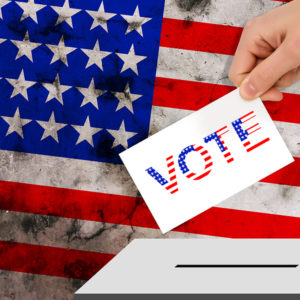Americans today have grave concerns about the health of our election system.
They know companies like Amazon can efficiently move millions of packages a day, yet states like Pennsylvania struggle to handle mail-in ballots a few times a year. They want secure ballots and know that IDs are routinely used when buying beer, boarding a plane, or getting a lifesaving COVID vaccine—yet somehow they become controversial when used for voting.
And they know elections are supposed to be governed by fair, clear rules. Yet last year’s election was marred by confusion and last-second voting changes ordered by courts in the midst of partisan progressive litigation. Elections should be decided by voters, not savvy lawyers looking for a partisan edge.
Unless addressed, Americans’ concerns may harden into disengagement. After extensive hearings, the Pennsylvania House passed HB1300, The Pennsylvania Voting Rights Protection Act. The bill modernizes the state’s aging election laws, improves the voting process, and brings the commonwealth in line with national norms and best practices.
States have made tremendous progress over the past half-century making voting easy and inclusive. Recent elections have set turnout and diversity records. For instance, the 2018 electorate saw a historic surge across every racial demographic. And last November, 94 percent of voters reported it was “easy” or “very easy” to cast a ballot.
HB1300 makes it easier to vote. The bill creates true early voting for the first time, gives seniors and disabled voters the right to move to the front of the line at a polling place, and lets disabled voters have ballots brought to them in their cars by bipartisan teams of election judges. The legislation also sets a standard that no voter should wait longer than 30 minutes to cast a vote.
The legislation also makes it harder to cheat. After all, voting rights are not truly protected unless the integrity of the process is preserved. Last year, Paterson, N.J. was ground zero for a fraud scheme that involved an attempt to rig a municipal election. Four people, including a city councilman and a councilman-elect, were indicted. In 2018, vote traffickers attempted to steal a congressional race in North Carolina, destroying hundreds of ballots in the process. The security of our elections cannot be taken for granted.
The bill enhances ballot security by requiring all voters to present ID when they vote, including absentee voting. Voter ID laws are tremendously popular; more than three-quarters of Americans favor them, including overwhelming majorities of Black and Hispanic Americans. Under HB1300, in-person voters have a lengthy list of IDs to choose from, including a free state ID, and absentee voters can use the last four digits of their social security number, a driver’s license number, or a voter registration number that is issued to every registered Pennsylvanian. ID laws reduce the risk of fraud and cut down on the chances that mail-in ballots will be mistakenly rejected. That’s a win-win for voters.
And for those worried that ID laws depress turnout, hard data proves turnout increased in most states that adopted ID laws.
HB1300 would also improve the mail-in voting system. The bill adjusts when voters can request mail ballots to match official recommendations from the U.S. Postal Service. At the request of election officials, the registration deadline would be returned to 30 days so that offices have time to adequately vet new registrations without compromising the work of preparing for and running elections.
Lawmakers are also ensuring that elections are conducted uniformly throughout the state, including by requiring that a binding manual of rules be published which counties must follow. Pennsylvanians have already seen how election results can change when counties interpret vague laws differently, as happened during a state Senate race last year when some counties counted undated ballots and others did not.
Much like Florida in the aftermath of the 2000 election, Pennsylvania is recovering from an embarrassing and chaotic election. Florida spent years reforming and improving its elections, and last year showed the nation how efficient and resilient its voting system has become. Reforms like those in the Voting Rights Protection Act would do the same for Pennsylvania, and transform the commonwealth into a national voting rights leader.

